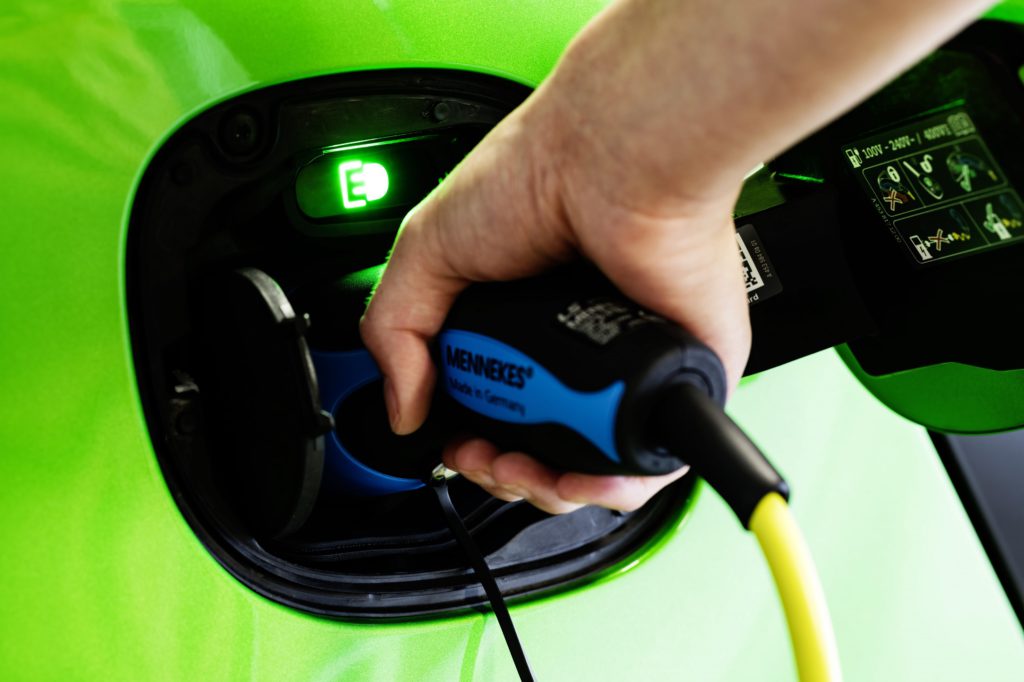UK scrappage scheme could focus on BEV sales
08 June 2020

8 June 2020
The UK Government is considering the introduction of a ′scrappage scheme’ that will see incentives for consumers buying battery-electric vehicles (BEVs), according to some press speculation.
As the coronavirus (COVID-19) outbreak plays havoc with the European automotive industry, through dealer closures and plant shutdowns, countries around the continent are working to support what is an important market in their economies. With Germany announcing a package of measures for its industry, and France and the Netherlands doing likewise, the UK is expected to follow suit.
The UK newspaper the Daily Telegraph reports that an incentive scheme is planned that will see drivers given a £6,000 (€6,736) grant towards a BEV if they trade in their petrol or diesel model. By offering this, the UK Government hopes to entice manufacturers of BEVs to the country, and aid automotive production. It is also hoped that such a move will improve sales in the country, which stalled in April and May as dealerships closed their showrooms.
However, according to statistics from the Society of Motor Manufacturers and Traders (SMMT), the UK sold 37,850 BEVs in 2019, representing a 1.6% market share. While the current year-to-date figures show 22,054 BEVs sold, representing 4.3% of the market, these figures have been deeply impacted by COVID-19. It is therefore questionable as to whether incentives on BEVs will provide the boost to sales the industry needs after two months of closures.
The Telegraph report does not make it clear whether hybrid or plug-in hybrid (PHEV) models will be included in the incentive scheme. It comes in the wake of the UK business secretary announcing five ′round-tables’, one of which will focus on how to capture economic growth opportunities from the shift to net-zero carbon emissions.
Green plans
It is most likely that the Government is considering such a scrappage scheme to help drive BEV uptake as it looks to ban petrol, diesel and hybrid models by 2035.
A 1.6% market share in 2019 was a record figure, with sales of BEVs increasing 144% year-on-year. However, putting these figures into context, nearly 1.5 million petrol models and almost 600,000 diesel vehicles left showrooms last year, while sales of traditional hybrids amounted to around 98,000. While the UK is doing more to improve its charging infrastructure, uptake in electric-vehicle technology is slow, and unless something is done to inspire buyers, the industry could be hit by a dramatic drop in the total number of car sales in 2035 and beyond.
Therefore, a BEV-related scrappage deal may work to entice more people, while ridding UK roads of polluting petrol and diesel models, helping reduce air pollution figures and increasing consumer confidence in the technology.
Price barrier
The £6,000 grant towards a BEV may not do enough however to make models affordable for the masses. Nissan currently lists the Leaf at £26,845, while the base-specification Micra retails from £14,215.
Therefore, a scheme based solely on BEV sales may do more harm to the country’s automotive industry than good, as those who cannot afford the list price of a BEV will keep their older cars and sales will continue to suffer. Autovista Group is forecasting a 30% drop in sales this year compared to 2019.
Manufacturing plans
The Telegraph report also states that part of the reason for focusing on BEVs is to bring more manufacturing to the UK, and assure those already in the country that it is a prosperous place from which to export. This comes in the wake of Nissan bosses warning that should the UK leave the EU without a trade deal in place at the end of its transition period in December, its plant in Sunderland – which builds the Leaf, will become ′unviable’.
BMW and Jaguar Land Rover (JLR) also build BEVs in the UK, so increasing sales in the market would help to convince them that remaining in the country would be beneficial. The Government may also be looking to persuade Renault to share the Nissan plant and build its Zoe in the UK. However, the French carmaker is likely to focus on its current plants following the unveiling of a turnaround plan.